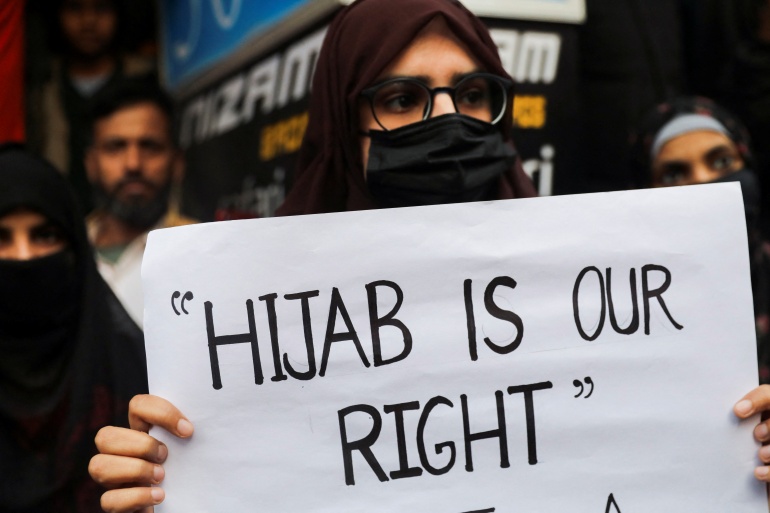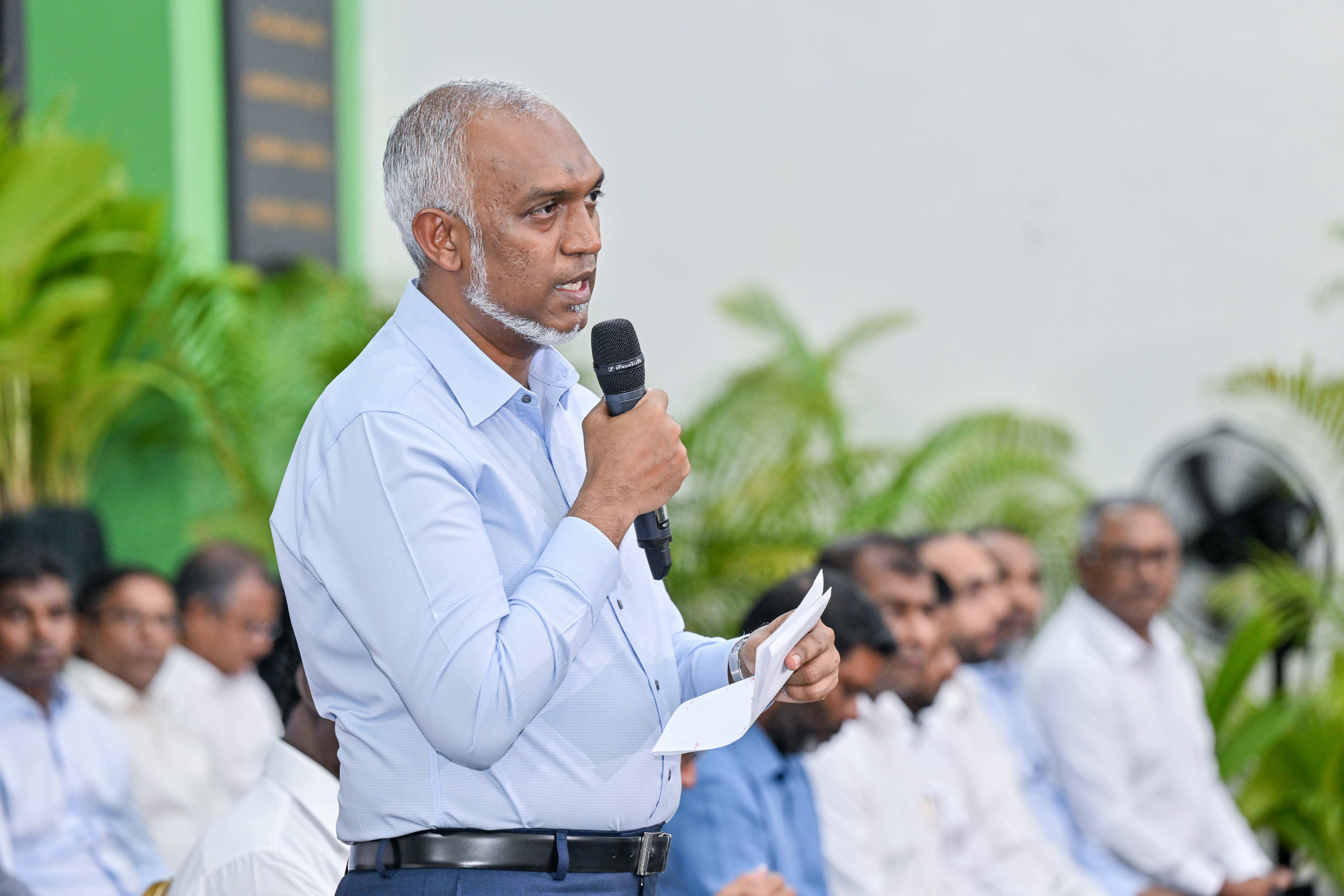A high court in India’s southern state of Karnataka upheld on Tuesday a ban on the wearing of hijab in classrooms, ruling that the Muslim head covering is not “essential” to Islam.
The ruling from the Karnataka high court came after Muslim students challenged a ban on headscarves in some educational institutions in the state, calling it a violation of their rights. The state government, run by Prime Minister Narendra Modi’s Hindu nationalist Bharatiya Janata Party (BJP), argued that wearing a hijab is not an essential practice of Islam.
On Tuesday, judges agreed with the government’s contention that the hijab is not essential in Islam and ruled that students cannot object to uniforms prescribed by schools.
“The school regulations prescribing dress code for all the students as one homogeneous class serve constitutional secularism,” Chief Justice Ritu Raj Awasthi of the Karnataka High Court said in the judgment.
“We are of the considered opinion that the wearing of the hijab by Muslim women does not form a part of essential religious practice.”
The order is likely to be challenged in India’s top court in the days to come, but it raised worries that it could set a legal precedent for other states. India is home to 200 million Muslims, who make up nearly 14 percent of the country’s population.
The ruling from the Karnataka high court came after Muslim students challenged a ban on headscarves in some educational institutions in the state, calling it a violation of their rights. The state government, run by Prime Minister Narendra Modi’s Hindu nationalist Bharatiya Janata Party (BJP), argued that wearing a hijab is not an essential practice of Islam.
On Tuesday, judges agreed with the government’s contention that the hijab is not essential in Islam and ruled that students cannot object to uniforms prescribed by schools.
“The school regulations prescribing dress code for all the students as one homogeneous class serve constitutional secularism,” Chief Justice Ritu Raj Awasthi of the Karnataka High Court said in the judgment.
“We are of the considered opinion that the wearing of the hijab by Muslim women does not form a part of essential religious practice.”
The order is likely to be challenged in India’s top court in the days to come, but it raised worries that it could set a legal precedent for other states. India is home to 200 million Muslims, who make up nearly 14 percent of the country’s population.


















